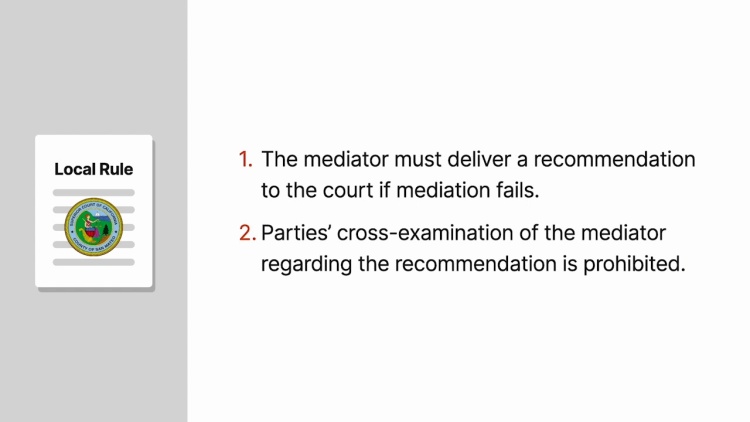McLaughlin v. Superior Court
California Court of Appeal
189 Cal. Rptr. 479 (1983)

- Written by Denise McGimsey, JD
Facts
Thomas McLaughlin (plaintiff) and Linda McLaughlin had three children when they decided to divorce. The parties each moved the court for custody. Under California law, custody and visitation disputes were to be mediated before a judicial hearing was held. If the mediation was unsuccessful, the mediator could, but was not obligated to, make a custody or visitation recommendation to the court in accordance with local court rules. The Superior Court (defendant) with jurisdiction over the McLaughlin matter had implemented a local rule requiring mediators to make recommendations to the court in the event mediation were unsuccessful. In order to maintain the confidentiality of mediation proceedings, the mediators were not allowed to provide the bases for their recommendations. Nor were the parties allowed to cross-examine the mediator as to such bases. Courts in other counties established different rules regarding mediation recommendations. Prior to mediation in the McLaughlin case, Mr. McLaughlin moved the court for a protective order stating that, in the event mediation was unsuccessful, the mediator would be prohibited from providing a recommendation to the court unless cross-examination were allowed. The court denied Mr. McLaughlin’s motion because it was contrary to the local rule. Mr. McLaughlin sought a writ of mandate from the Supreme Court of California, which then asked the Court of Appeal to consider the constitutionality of the local rule.
Rule of Law
Issue
Holding and Reasoning (Rattigan, J.)
What to do next…
Here's why 907,000 law students have relied on our case briefs:
- Written by law professors and practitioners, not other law students. 47,100 briefs, keyed to 996 casebooks. Top-notch customer support.
- The right amount of information, includes the facts, issues, rule of law, holding and reasoning, and any concurrences and dissents.
- Access in your classes, works on your mobile and tablet. Massive library of related video lessons and high quality multiple-choice questions.
- Easy to use, uniform format for every case brief. Written in plain English, not in legalese. Our briefs summarize and simplify; they don’t just repeat the court’s language.





